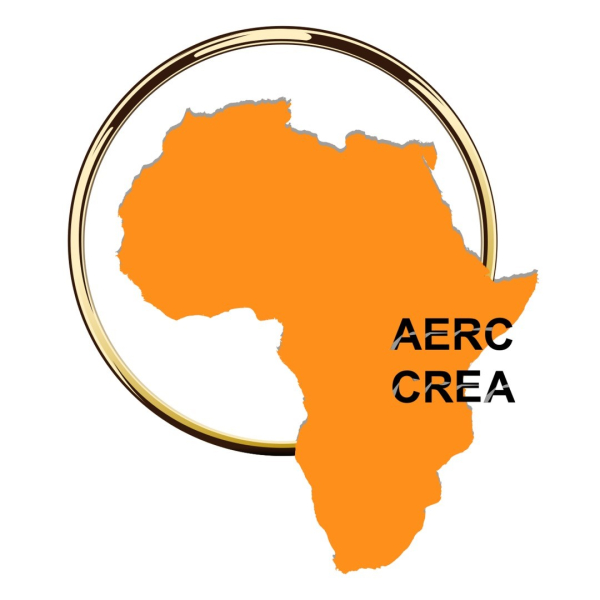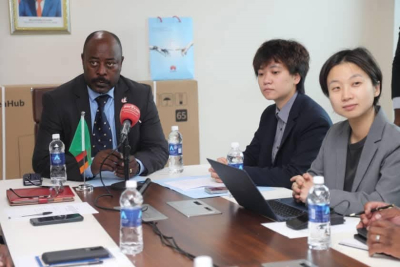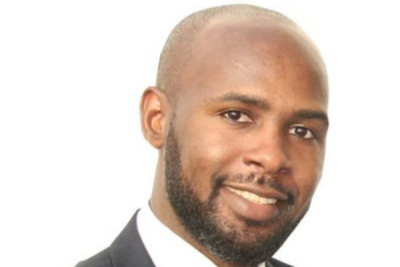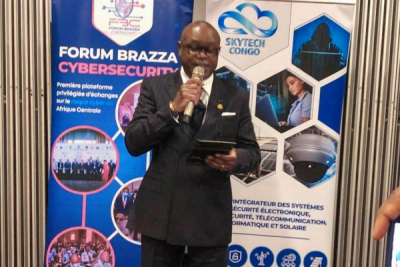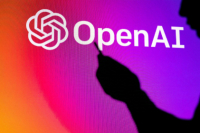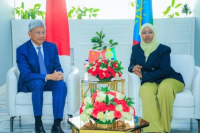Throughout 2024, Côte d’Ivoire implemented several projects aimed at enhancing digital inclusion for its population. However, challenges remain.
On Monday, November 25, Côte d’Ivoire's Ministry of Digital Transition and Digitalization announced that its budget had been approved by the National Assembly's Economic and Financial Affairs Commission. Valued at 60.78 billion CFA francs (approximately $96.8 million), the budget aims to enhance connectivity, ensure equitable access to technology, promote digital skills, and support youth and women in the digital sector.
The budget includes 8.1 billion CFA francs to investments, 5.7 billion CFA francs to personnel expenses, 1.9 billion CFA francs for general administration, 19.9 billion CFA francs for the digital economy and postal services, 35.5 billion CFA francs for rural technology development, and 4.6 billion CFA francs to support activities in the electronic communications sector.
To achieve its goals, the ministry has outlined a series of initiatives. These include advancing the implementation of the E-Government Strengthening Support Project (PARAE), training 265 specialists in information and communication technologies, organizing the Ivoiretech forum, and bolstering state employees’ proficiency in digital tools.
Minister of Digital Transition and Digitalization Kalil Konaté highlighted key priorities such as fostering an innovative digital ecosystem, bridging the digital divide through rural investments, and strengthening ICT regulations to ensure secure development.
Côte d’Ivoire's digital progress is evident in recent metrics. According to the International Telecommunication Union, the country achieved a 2024 ICT development index score of 65.3 out of 100. Its online administration development index improved to 0.5587 out of 1 in 2024, up from 0.5467 in 2022.
By Adoni Conrad Quenum,
Editing by Sèna D. B. de Sodji
Kenya will host the 61st Biannual Plenary Session on the FinTech Revolution in Africa on December 1, 2024. The forum will bring together FinTech leaders to discuss banking sector advancements and the integration of financial technology.
Organized by the African Economic Research Consortium (AERC) in partnership with the Central Bank of Kenya (CBK), the event will highlight Africa’s growing role in financial innovation and its potential to drive inclusive growth and transformation.
This plenary aims to position Africa as a global leader in digital finance, fostering financial inclusion and economic transformation.
In 2016, Guinean authorities intensified efforts to take control of the country’s top-level domain. At the time, the resource was managed by the U.S.-based registry PSGNet.
The Guinean government has completed the repatriation of its national top-level domain, .GN, marking the end of "over 20 years of effort and determination." The Ministry of Posts, Telecommunications, and Digital Economy announced on Wednesday, November 27, that the official launch is scheduled for December 4.
Discussions to repatriate management of the domain, previously overseen by U.S.-based registry PSGNet, began in 2016. A key milestone came in 2017 with a decree signed by then-President Alpha Condé, which established rules for the technical and administrative management of the national Internet domain. In January 2022, Aminata Kaba, then Minister of Posts, Telecommunications, and Digital Economy, was tasked with securing Guinea's control over its domain.
This achievement is significant for Guinea’s digital sovereignty, as the country has identified digital transformation as a cornerstone of its socio-economic development. Local management of the domain is expected to bolster national cybersecurity, especially in an era of rapid technological change. In the Global Cybersecurity Index 2024 by the International Telecommunication Union (ITU), Guinea is classified as a Tier 3 country, indicating a "basic commitment to cybersecurity" with a score of at least 55/100.
“The world we live in is profoundly shaped by technology, and the future of our independence largely depends on our ability to control our digital infrastructure. Guinea must, more than ever, carve its own path in technological development by safeguarding its data, fostering local innovation, and ensuring equitable access to information and digital services for all its citizens,” said Rose Pola Pricemou, Minister of Posts, Telecommunications, and Digital Economy, in the October edition of the ministry’s Digital Bulletin.
By Isaac K. Kassouwi
Editing by Sèna D. B. de Sodji
On November 26, Huawei handed over smart boards and other technology to the Ministry of Local Government and Rural Development, received by Permanent Secretary Maambo Hamaundu.
This move reaffirmed Huawei’s commitment to supporting Zambia's digital transformation through enhanced collaboration with the government.
The equipment, featuring video conferencing and wireless sharing, aims to boost connectivity and streamline operations, reducing the need for travel.
A specialized computer scientist, he is an expert in machine learning, artificial intelligence, and big data. Leveraging this expertise, he develops innovative technological solutions to enhance language learning and mastery.
Pascal Uriel Elingui (photo) is a Côte d’Ivoire-based tech entrepreneur and the co-founder and CEO of Wakkeh, a software development company.
Founded in 2022, Wakkeh focuses on creating innovative educational solutions. Its flagship product, Dictable, is a French language learning platform designed to enhance writing and communication skills for young Africans and users worldwide. Powered by artificial intelligence, Dictable enables users to perform dictation exercises autonomously.
The platform features an automated error detection tool, provides contextual assistance, and includes interactive functionalities that make the learning process engaging and enriching. Dictable also hosts online dictation contests, expanding its educational reach and fostering competitive learning.
Pascal Uriel Elingui is an instructor on Coursera and holds a master's degree in mobile networks and services from the Ecole Supérieure Multinationale des Télécommunications (ESMT) in Senegal, obtained in 2010. He has also completed online courses in machine learning and big data at institutions such as ESSEC Business School and the University of Washington.
Professionally, his career began in 2011 as an IT consultant for Qualisys Consulting in Senegal and a systems administrator at Global Technics in Mauritania. In 2012, he joined Voxygen SAS, a software development company, as a research and development engineer. Between 2020 and 2023, he mentored students on the OpenClassrooms platform, sharing his expertise in cutting-edge technology.
In 2023, Elingui's commitment to leveraging technology for educational innovation was recognized when he won the Orange Social Entrepreneur Prize in Africa and the Middle East (POESAM) in Côte d’Ivoire for Dictable. The award underscores his mission to transform education through creative tech solutions and make a lasting impact on learners worldwide.
By Melchior Koba
Editing by Sèna D. B. de Sodji
Without robust security measures, digital transformation in Africa risks failure. In Congo, where significant investments are driving ICT growth, a strong focus on digital security is placed on protecting online users and safeguarding critical systems.
Léon Juste Ibombo (photo), Congo's Minister of Posts, Telecommunications, and the Digital Economy, delivered the keynote address on Monday, November 25, at the second edition of the Brazza Cybersecurity Forum. He emphasized the critical importance of digital security in light of the exponential rise in cyber threats across all sectors and affirmed that cybersecurity lies at the heart of Congo's strategic development.
"Cybersecurity is no longer optional but an imperative in an increasingly connected world," Ibombo said.
In recent months, Congo has ramped up strategic partnerships as part of its national digital transformation strategy, "Congo Digital 2025." Although cybersecurity is a priority within this initiative, the country remains behind in this domain. According to the Global Cybersecurity Index 2024 published by the International Telecommunication Union (ITU), Congo is ranked in Tier 4 with a score of 27.61 out of 100, highlighting significant gaps in digital protection and underscoring the urgency to accelerate efforts. It was thus placed in the “Evolving” category.
"Evolving represents countries that obtained an overall score of at least 20/100 by demonstrating a basic cybersecurity commitment to government-driven actions that encompass evaluating, establishing or implementing certain generally accepted cybersecurity measures in at least one pillar, or several indicators and/or sub-indicators," the ITU explained in its report.
Congo lags in four of the five pillars comprising the index. While it scored 14.12 out of 20 in legal measures, it earned a dismal 0 out of 20 in technical measures, 0.72 in capacity building, 3.9 in organizational measures, and 8.87 in cooperation with regional, continental, and global partners.
To achieve its goal of becoming a technology hub, Congolese authorities must prioritize several actions. These include establishing technical infrastructures such as Computer Emergency Response Teams (CERT/CSIRT) and cybersecurity threat protection measures, investing in education, awareness, and research to build cybersecurity skills, and forging international and regional partnerships to combat cyber threats. Active participation in agreements and collaborative initiatives will also be essential.
Adoni Conrad Quenum
Artificial intelligence (AI) is rapidly transforming industries worldwide. While Africa stands to benefit significantly from its advancements, the limited integration of African languages into AI systems poses a major obstacle to its full potential.
Orange announced, yesterday, a partnership with OpenAI and Meta to advance this initiative. The project, set to launch in the first half of 2025, aims to develop AI systems capable of recognizing and interacting with African languages.
West African languages such as Wolof and Pulaar will be the first to be included in the project. These languages will be integrated into OpenAI's Whisper and Meta's Llama technologies, which specialize in language recognition and translation.
Current AI models are predominantly trained using English-language data, which limits their capacity to support African languages. The underrepresentation stems from the scarcity of data available in these languages. To address this gap, Orange will contribute data from its local applications, particularly those used in customer service, to enhance AI processing of African languages.
One of the key objectives is to allow Orange users to interact with customer service in their native languages, making the user experience more seamless and accessible. The advancements achieved through this collaboration will extend beyond Orange’s services. The AI models developed will also be made available for non-commercial use, supporting public health and education initiatives.
By Servan Ahougnon
Editing by Sèna D. B. de Sodji
He has over ten years of experience in technology, education, and entrepreneurship. A former intern at NASA, he leverages his expertise in geospatial technology to gather valuable data that supports various development sectors.
Richard Folly (photo) is a Togolese geospatial analyst and technology entrepreneur. He is the founder and CEO of African Geospace, a company specializing in space technologies and big data analytics.
Founded in 2019, African Geospace develops solutions based on satellite data analysis and artificial intelligence, empowering clients to make informed decisions and optimize their operations using cutting-edge tools. The company serves several key sectors.
In agriculture, African Geospace provides solutions for improved crop monitoring, promoting optimal production while prioritizing environmental sustainability. In mining, the firm offers tools to maximize resource extraction while ensuring sustainable practices. Additionally, it plays a significant role in advancing the energy transition.
Richard Folly earned a bachelor’s degree in geography from the University of Lomé in 2016. He also holds a 2017 public management certificate from Arizona State University.
In 2016, he taught digital literacy at ESIG Global Success, a university specializing in IT and management. The following year, he interned at NASA, focusing on geospatial technologies. Between 2020 and 2022, he worked as a data scientist at Togo’s Ministry of Digital Economy and Digital Transformation.
Melchior Koba
To bolster its digital transformation efforts, Ethiopia is forging strategic partnerships, including closer ties with an Asian country on cybersecurity matters.
Tigist Hamid (photo, right), Director General of the Information Network Security Administration (INSA), recently met with Chen Hai (photo, left), China's Ambassador to Ethiopia. According to the Ethiopian News Agency, which revealed the meeting on Monday, November 25, the discussions focused on cybersecurity.
The news agency reveals that Tigist Hamid presented the Chinese official with "cybersecurity products and services provided by the administration as well as ongoing efforts to enhance the country's cybersecurity infrastructure." She also highlighted the need for sustained support and collaboration between the Ethiopian and Chinese governments in the field of cybersecurity.
Ethiopia is currently ranked as a Tier 3 country on the International Telecommunication Union's (ITU) Global Cybersecurity Index, with a score of 76.34 out of 100. This ranking reflects a basic level of commitment to cybersecurity, as measured by public initiatives to evaluate, establish, or implement generally accepted measures across a moderate range of indicators.
China, by comparison, scored 91.64 out of 100 in the 2024 index, placing it in the Tier 2 category. While not among the leading nations in cybersecurity, China’s advanced expertise and its influential tech companies—such as Huawei, ZTE, Tencent, and Xiaomi—could prove valuable for Ethiopia as it seeks to strengthen its digital defenses.
Adoni Conrad Quenum
Language diversity in Africa often limits digital inclusion. Offering technologies in local languages simplifies access, encouraging adoption and broader use, which bridges the digital divide.
French multinational telecom Orange has announced a partnership with OpenAI and Meta to develop AI Large Language Models (LLMs) tailored to understanding regional African languages. Announced on November 26, the initiative will utilize OpenAI's Whisper and Meta's Llama platforms to address the underrepresentation of African languages in AI systems.
“Orange’s long-term goal is to work with many AI technology providers to enable future models to recognize all African languages spoken and written across Orange’s 18-country footprint in the region,” the release stated.
The project, set to launch in 2025, will initially focus on enhancing customer interactions in Wolof and Pulaar, spoken by millions in West Africa, and extend Orange’s digital inclusion efforts. These models will also be available for non-commercial use in public health and education.
Most existing AI models primarily cater to widely spoken languages, leaving millions of African language speakers without representation in digital systems. Orange's collaboration with OpenAI and Meta to develop AI models for African languages tackles a significant barrier to digital inclusion.
By enabling technology to communicate in local languages, the partnership promotes inclusive innovation and aligns with global efforts to ensure digital access for underserved populations.
Hikmatu Bilali
More...
Malawi Communications Regulatory Authority (MACRA) briefed stakeholders, on November 26, about the upcoming Communications Electronic Equipment Type Approval Regulations, set to take effect Dec. 1, 2024.
The initiative is part of a broader effort to enhance Malawi's communication infrastructure. This approach is intended to facilitate interoperability among communication networks and equipment while also protecting public health.
Stakeholder sessions were also held in Blantyre, with another planned for Mzuzu.
Guinean and Sierra Leonean authorities have held several meetings since July as part of negotiations to advance a digital interconnection project. These discussions have laid the groundwork for collaboration between the two countries.
Rose Pola Pricemou, Guinea’s Minister of Posts, Telecommunications, and Digital Economy, and Salima Monorma Bah, Sierra Leone’s Minister of Communication, Technology, and Innovation, signed a framework agreement on Friday, November 22, in Freetown to enhance digital interconnection between their two nations.
The agreement focuses on linking the internet backbones of the two countries, aiming to improve connectivity and facilitate digital exchanges. It builds on discussions launched during the China-Africa Digital Summit in July. In August, a Sierra Leonean delegation led by Minister Monorma Bah visited Guinea to refine the technical framework of the partnership.
According to Minister Pricemou, the initiative is expected to harmonize postal policies to improve essential services for the population—particularly in rural areas—while making networks more robust and reliable. This should reduce costs, enhance the quality of digital services, and foster a dynamic digital ecosystem. It also seeks to encourage collaborative initiatives in fields like big data and cybersecurity.
As of early 2024, Guinea had 4.87 million internet users, representing an internet penetration rate of 33.9%, according to DataReportal. Sierra Leone, in comparison, recorded 2.7 million users and a penetration rate of 30.4%.
Cost remains a barrier in both countries. In Guinea, a monthly high-speed data package (at least 5 GB at 256 Kbps or higher) required 8.1% of the average gross national income per capita in 2023, according to the International Telecommunication Union (ITU). In Sierra Leone, the same metric stood at 38.2% in 2017, underscoring the challenge of affordable access in the region.
Adoni Conrad Quenum
He is a computer scientist and entrepreneur driven by a passion for leveraging technology to develop innovative solutions. He has already founded two companies—one specializing in finance and the other in healthcare.
Jessé Liula Schiceya (photo) is a serial entrepreneur from Namibia and the founder of Nikkle, a company specializing in financial management services for small and medium-sized enterprises (SMEs).
Launched in 2021, Nikkle offers a comprehensive financial management platform with a wide range of features. It helps businesses streamline accounting, manage human resources, optimize client relations, and coordinate projects. The platform empowers business leaders by providing tools to create invoices, draft quotes, manage recurring expenses, and automatically generate financial reports for tax filings. Today, Nikkle serves over 10,000 clients across six Southern African countries.
Schiceya is also a co-founder of Patient Care, a startup focused on improving the accessibility, quality, and affordability of healthcare in Africa. Additionally, he sits on the board of the Global Africa Leadership Council, an organization dedicated to promoting development financing, investment, and economic growth.
Schiceya earned a degree in computer science from the London Business School in 2014 but began his career earlier, in 2011, as an assistant at Shoprite, a leading retail company in Africa. By 2020, he had risen to the position of Head of IT, Digital, and Data Protection at GFA Consulting Group, an international consultancy.
His entrepreneurial talent gained widespread recognition in 2022. Schiceya was awarded the Most Promising Entrepreneur in Southern Africa by AfricArena and won the Startup Namibia Slingshot Pitch competition organized by Startup Namibia.
Melchior Koba
Africa is the continent with the most expensive mobile internet in the world, according to the International Telecommunication Union (ITU). On average, African populations spend 4.9% of their monthly gross national income (GNI) per capita to access a standard monthly internet plan, compared to the global average of just 1.3%.
In 2023, mobile internet costs in West Africa were most affordable in Nigeria, Ghana, and Côte d’Ivoire, according to data from the International Telecommunication Union (ITU), the UN’s specialized agency for information and communication technologies.
In Nigeria, accessing the cheapest mobile broadband plan offering at least 2GB of data per month using 3G technology required 1.61% of the monthly gross national income (GNI) per capita. In Ghana and Côte d’Ivoire, the cost was 1.94% and 2%, respectively, of the monthly GNI per capita. The ITU considers internet affordable when its cost is equal to or less than 2% of monthly GNI per capita. In West Africa, only Nigeria, Ghana, and Côte d’Ivoire met this benchmark in 2023. Across Africa, the average stood at 4.9% of monthly GNI per capita. Senegal (2.47%) and Mauritania (3.01%) were below this average but still above the affordability threshold.
In contrast, Guinea-Bissau, Burkina Faso, and The Gambia had the highest mobile internet costs in the region. Residents of these countries had to spend 9.79%, 9.81%, and 11% of their monthly GNI per capita, respectively, to access the same type of mobile broadband plan.
Factors Behind High Costs
Various factors contribute to the high cost of internet in these countries. According to the State of Broadband 2024: Leveraging AI for Universal Connectivity report published in June 2024 by the Broadband Commission, lack of affordability remains a significant barrier to internet access, especially in low-income economies. The report adds that compared to prices in high-income economies, the cost of mobile broadband services is 5.5 times less affordable in lower-middle-income countries and over 20 times less affordable in low-income countries.
The State of Mobile Internet Connectivity 2024 report from the Global System for Mobile Communications Association (GSMA) notes that Sub-Saharan Africa has the highest coverage gap globally, at 13%. This is largely due to the lack of telecommunications infrastructure, which forces some markets to impose high tariffs to make the most of limited resources. "Fixed broadband networks are very expensive to deploy, maintain, and upgrade, especially considering geography and the vast areas that need coverage," the ITU highlighted.
Adoni Conrad Quenum



